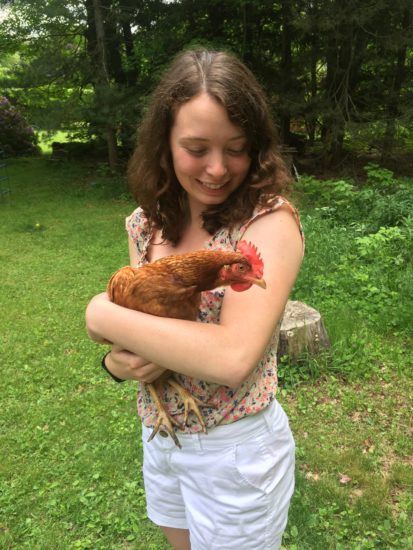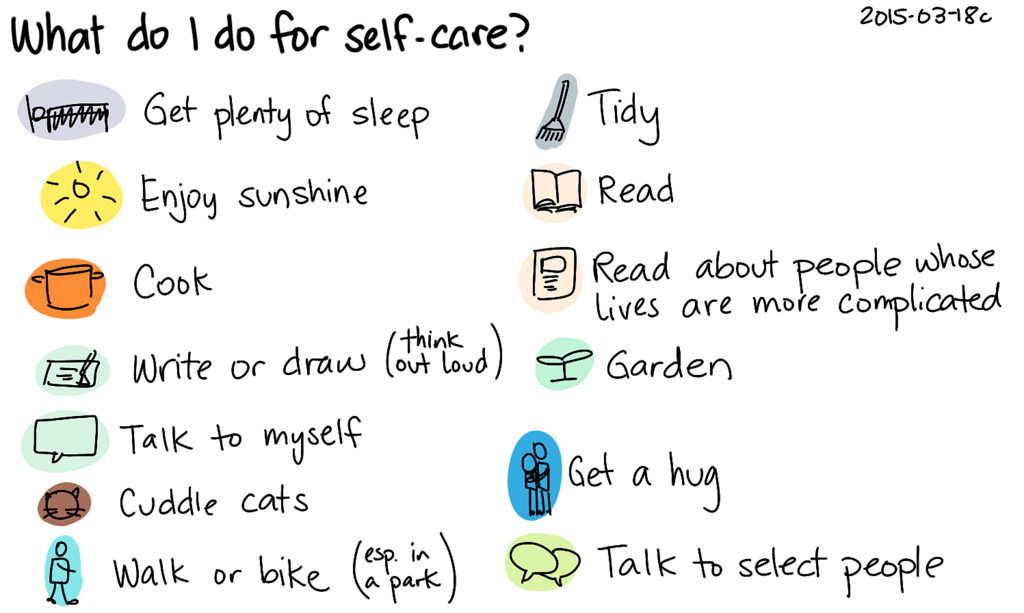Last week, I was scrolling through my Facebook feed when an article titled “The Millennial Obsession With Self-Care” caught my eye. It discussed how many teens and young adults are starting to practice self-care as a way to cope with stressful situations and mental illnesses. I think that self-care is extremely important because it has helped me sort through stressful situations. Here are two of the many things that have stressed me out in life: climate change and my weight. Although these topics seem pretty unrelated on the surface, I have learned that my interaction with one of these stressors can actually affect how I treat the other. This might sound a little confusing, but trust me on this one.

When I was growing up, I was very skinny. Like, I am talking about the type of kid that could still fit into clothes that they wore in the third grade as a seventh grader. I remember trying on hand-me-downs of clothing, worn by my my average-sized sisters when they were my age, that were often too big. I was happily known as a “stick”, and I loved the ability of surprising my friends by cramming into a small laundry hamper during an afternoon of hide-and-seek. However, like every tween boy and girl, my body went through some surprising changes when I hit puberty in the seventh grade.

Not everything was different about me. I was still thin for my age, but I was growing at a much faster rate. I remember feeling slightly embarrassed in the changing room of an Aeropostale during summer 2011 when I learned that I have gone from a size “00” in shorts to a “0”. Looking back, it was ridiculous for me to feel that way, and I knew that at the time, but I still felt self-conscious. Things started to pick up the pace as a freshman in high school. Being a track and field athlete, I assumed that there was a specific body type needed in order to be a successful runner: a flat stomach with ripped abs, a bottom that could fit into the smallest size racing short offered, and thighs that never touched. Ironically enough, I was apprehensive to lift heavier weights, something that would help me become a better athlete, because I was worried that gaining weight would prevent any improvement. Eventually, I began to listen to my coach, pushed myself in the weight room, and made a huge improvement on the track. I was comfortable with my body, which meant I was back to being me.
So, how does any of this relate to sustainability?
Surprisingly enough, I did not realize the connection until this past spring semester. Like most college students I, too, fell victim to the dreaded “freshman fifteen”. Unfortunately, what seemed like a year-long foot injury prevented me from running as much as I wanted this year, so I would estimate that the more honest description would be more like a “freshman twenty (on a good day)”. So, during my fall semester, I would feel extremely self-conscious whenever I saw pictures of thinner girls, or even photos of myself from the summer before, on Instagram or Facebook. The second I got the OK from my doctor to run again, I was a little too eager to shed off some pounds. The injury came back, I had a stress fracture, and I found myself listening to environmental humanities professor Leila Nadir talking about “The Great Separation” in CAS 260: Climate Futures. “The Great Separation” said Nadir, “is the longheld assumption that humanity and the Earth shared destinies was disrupted with industrialization in the 19th century”. Before the Industrial Revolution, the lives of humans were deeply rooted within nature. Many people relied on animals for transportation and they were at the mercy of a good growing year to feed their family throughout the winter. However, when machines were invented to make work happen faster and much more efficiently, humans and nature no longer seemed to be a part of one another.
At that moment, I realized that I was having my own Great Separation between myself and my body, caused by a reliance on technology to determine my worth. I started relying on technology and social media interactions to influence how I felt about my body instead of just being happy with the way I was made. Sure, my BMI might have been a little higher, but I was still me. Why was I letting myself believe that anything I saw online determine my self worth?
Then, the even bigger questions hit me: How can I truly advocate for the well-being of our planet if I fail to care for my own physical and mental health? At some point in my life, I had forgotten that I am just as much a part of the environment as the birds I watch in the quad and the plants growing in my room. If you know me, you know that I am very passionate about environmental conservation. So, if I had ever struggled as an EcoRep to discuss the importance of environmental conservation with others, it was almost always due to the fact that I was feeling down about myself. At the end of the day, I know that I have been bless with friends and family who love and accept me for me, so there was no need for me to focus on something like my weight.
Whether you believe that God created man in His image or that humans shared a common ancestor with apes, humans are a part of nature. We need to view self-care as a way of reconnecting with nature. Like my own situation, our society is established in a way that emphasizes a reliance on technology that is often at the expense of nature, whether it be the nature we see on the way to class or the nature within ourselves. We need to break the cycle, but sometimes making a change in this world starts with making a change with yourself.

Written by Michaela Burrell, Class of 2020
Photo source: https://www.flickr.com/photos/sachac/16691122547

